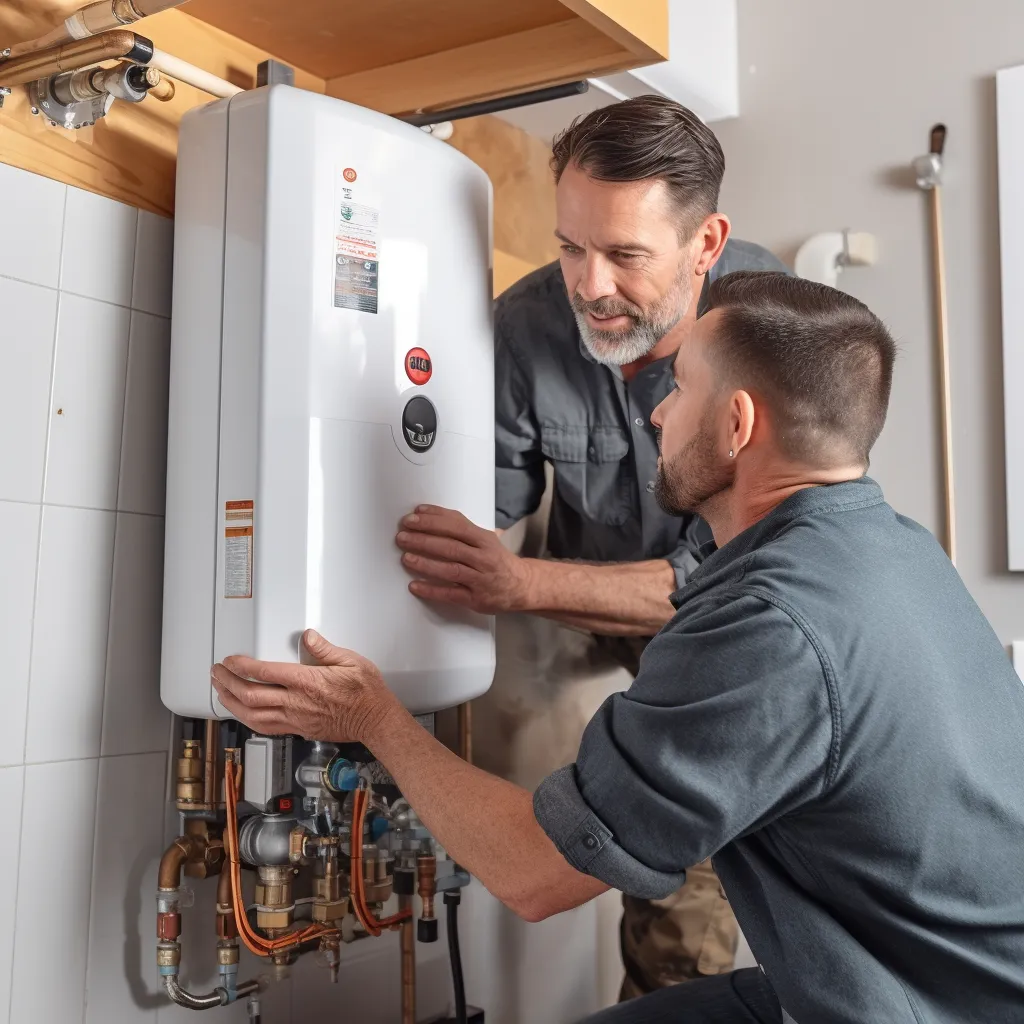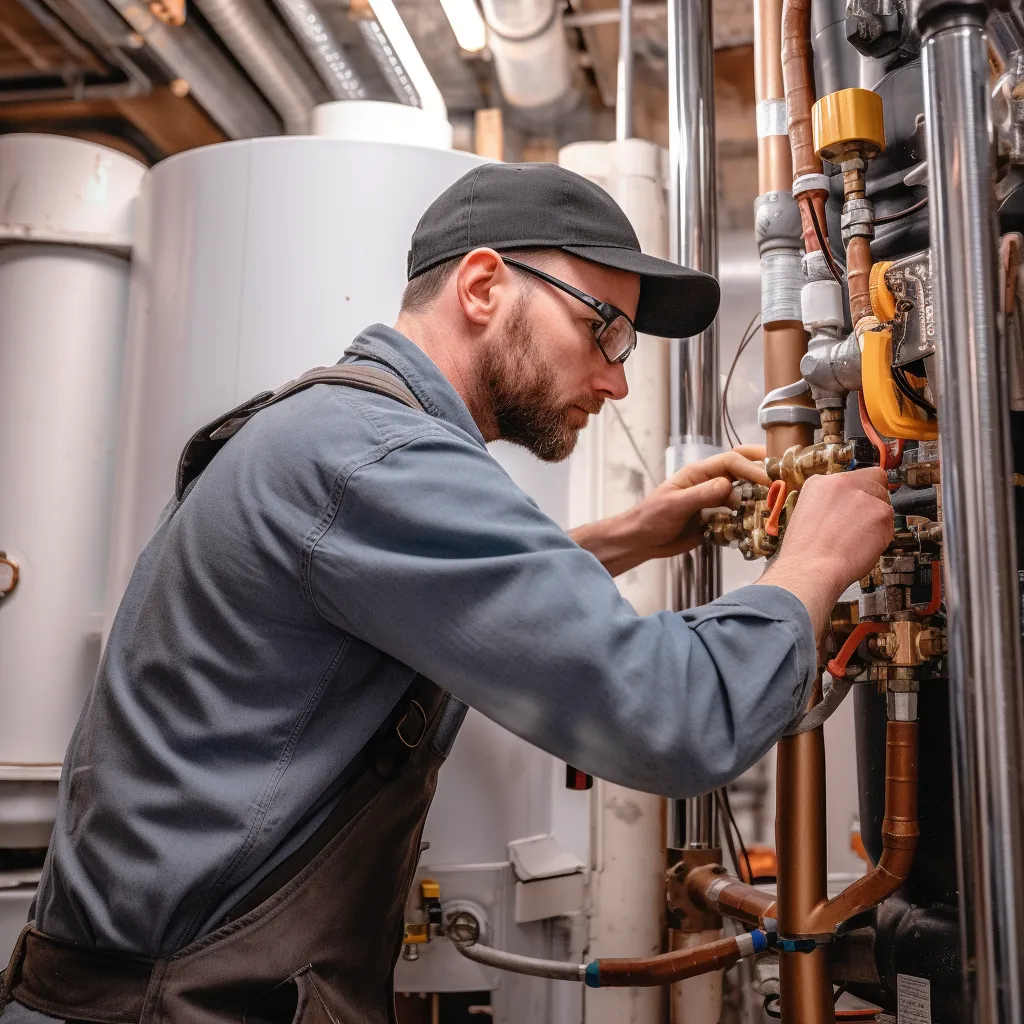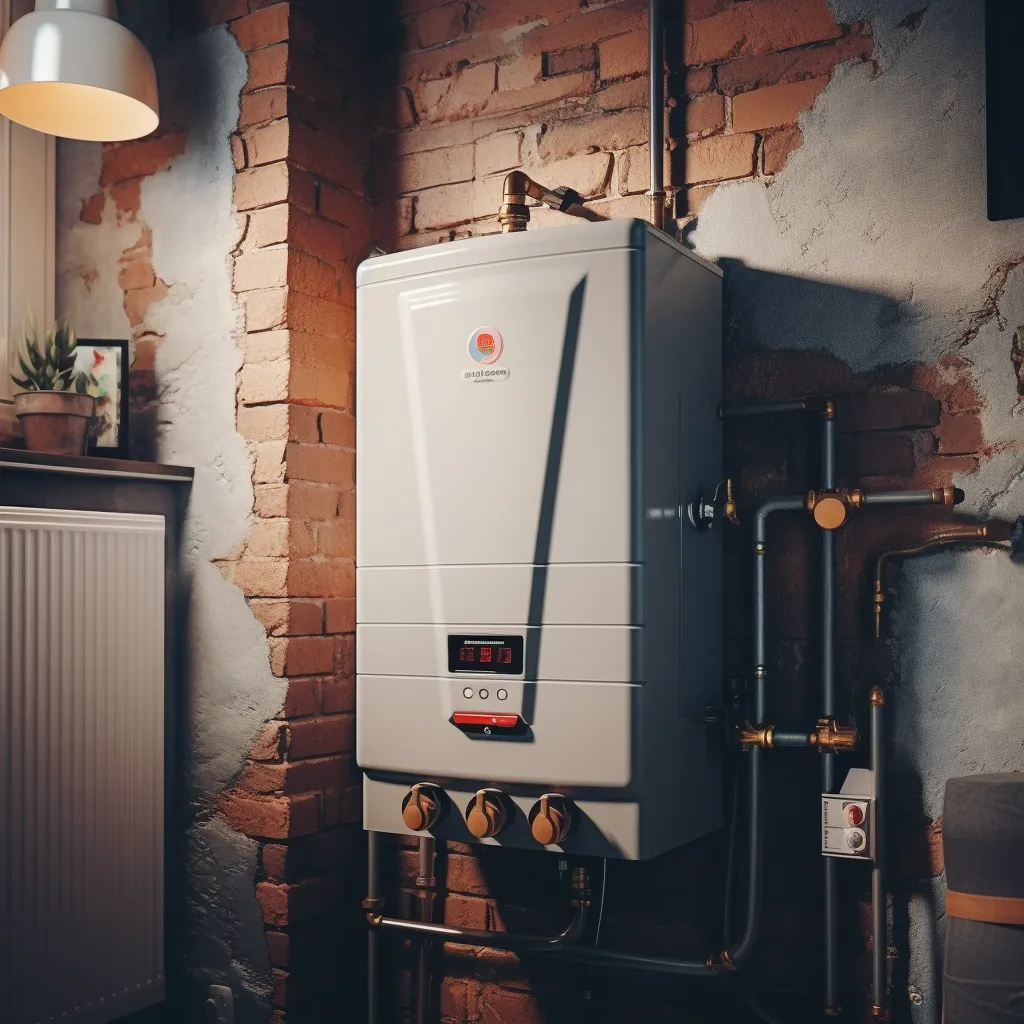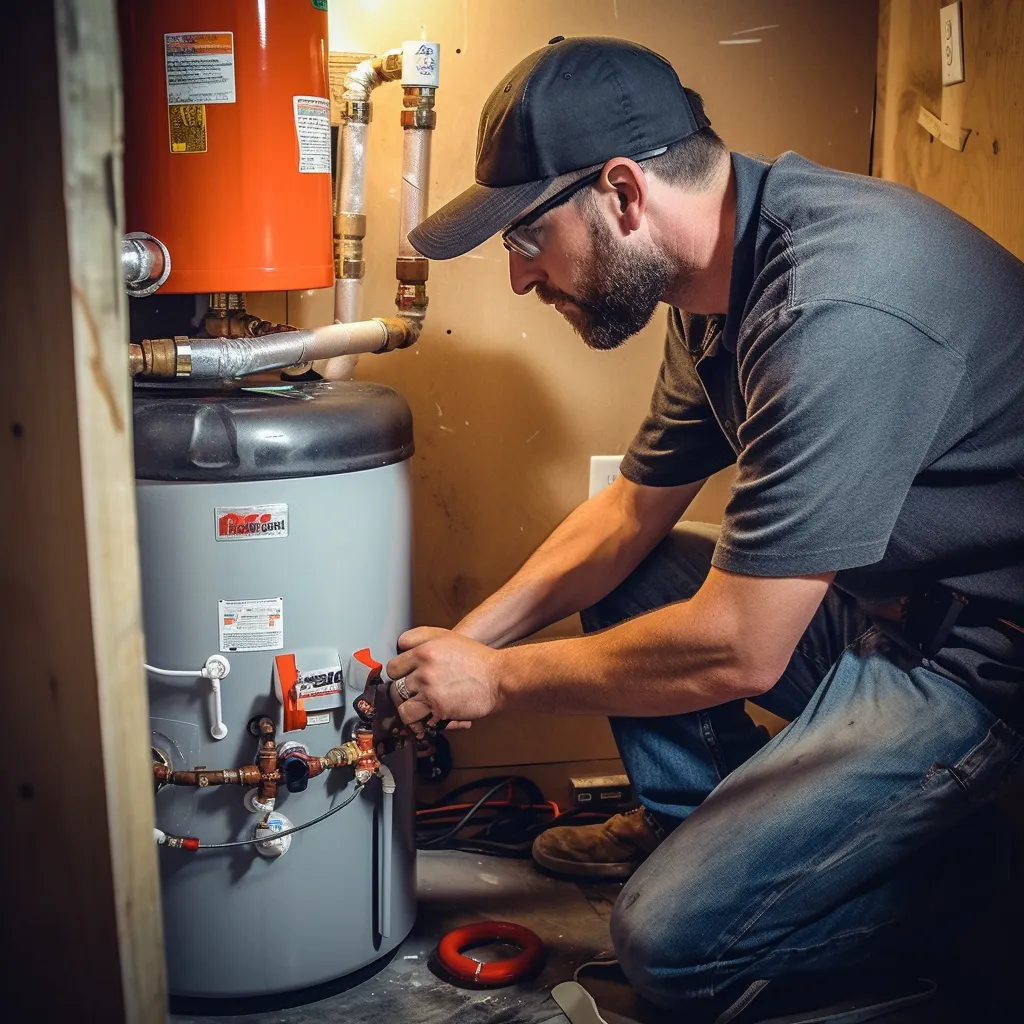Everything You Need to Know About Water Heater Replacement Cost
Understanding the costs associated with water heater replacement is essential for making an informed decision. Whether you're considering electric or gas options, thorough research will help you assess the expenses involved. By gathering information about cost factors, you can choose a water heater that fits your budget and provides a dependable hot water solution for your home.

When do you need to replace a water heater?
Replacing your water heater is important to ensure a reliable supply of hot water in your home. Here are some key factors to consider when determining if it's time for a replacement:
Age: If your water heater is older than 8-12 years, it may be time for a replacement.
Corrosion: Rust or corrosion on the tank indicates a need for replacement.
Leaks: Some leaks can be repaired, but others may require replacing the entire unit.
Insufficient hot water: Decreased hot water supply or running out of hot water quickly may indicate the need for a replacement.
Repair frequency and cost: Frequent repairs or high repair costs may make replacement a more cost-effective option.
Energy efficiency: Upgrading to a more energy-efficient model can lead to long-term cost savings.
Changing needs: If your household has grown or your hot water usage has increased, consider upgrading to a larger capacity unit.
Safety concerns: If you notice gas leaks, electrical malfunctions, or other safety issues, prioritize safety and replace the water heater
Taking proactive measures to ensure a reliable hot water supply in your home is essential. Regular maintenance, including flushing the tank, checking for leaks, and inspecting the heating elements, can extend the lifespan of your water heater. It's also important to be attentive to signs that may indicate the need for a replacement, such as age, corrosion, leaks, and inadequate hot water. By being proactive and addressing these issues promptly, you can avoid unexpected failures and maintain a consistent hot water supply in your home.

What affects the cost of replacing a water heater?
The cost of replacing a water heater can vary depending on several factors. These factors include the type of water heater, size, features, installation requirements, and any additional plumbing or electrical work needed. It is crucial to consult with a professional to obtain accurate estimates and guidance tailored to your specific needs. Their expertise will help you understand the cost implications and make informed decisions when budgeting for a water heater replacement.

Warranty coverage: Some water heaters come with extended warranty options that can affect the upfront cost but provide long-term peace of mind.
Local codes and permits: Compliance with local building codes and obtaining necessary permits can add to the overall cost of the replacement.
Additional upgrades: If you decide to upgrade to a more energy-efficient or advanced model, such as a smart water heater, it may come at a higher price point.
Location: The cost of water heater replacement can also vary based on your geographical location and local market conditions.


Replacing with energy-efficiency in mind
Investing in an energy-efficient water heater has major benefits:
Incentives and rebates: Many energy-efficient water heaters qualify for incentives and rebates offered by utility companies or government programs, which can help offset the initial cost and provide additional savings.
Long-term savings: While energy-efficient water heaters may have a higher upfront cost, the long-term savings in reduced energy bills can outweigh the initial investment, resulting in overall cost savings.
Increased property value: Energy-efficient features, including water heaters, can add value to your home, making it more attractive to potential buyers if you decide to sell in the future.
Environmental impact: Energy-efficient water heaters help reduce carbon emissions and minimize environmental impact, contributing to a cleaner and more sustainable planet.

How to calculate the size
of the water heater you need for your home
Consulting with a professional is essential to determine the ideal size for your hot water heater. They will consider various factors that impact sizing, including:
Number of household occupants: The more people in your household, the higher the demand for hot water, requiring a larger capacity water heater.
Daily hot water usage: Consider the typical hot water activities in your home, such as showering, washing dishes, or doing laundry, to determine the volume of hot water needed.
Peak usage times: If there are specific times when hot water usage is concentrated, such as in the mornings or evenings, it's important to choose a water heater that can meet the demand during those peak periods.
Appliances and fixtures: Take into account any additional hot water needs from appliances like dishwashers or washing machines, as well as the flow rates of showers, faucets, and other fixtures to ensure sufficient hot water supply.
Climate: In colder climates, a larger water heater may be required to compensate for the colder incoming water temperature.


Research the different types of water heaters
When selecting a water heater for your home, you have several options to consider. Traditional tank water heaters store a large volume of hot water in a tank until needed. Tankless water heaters, on the other hand, heat water instantly as it flows through the unit without the need for a storage tank. Hybrid water heaters combine features of both tank and tankless systems, providing energy-efficient operation and a constant supply of hot water. Solar water heaters utilize the sun's energy to heat water, reducing dependence on traditional energy sources. Heat pump water heaters extract heat from the surrounding air or ground, making them energy-efficient and cost-effective. By evaluating your household's specific needs, energy efficiency goals, and budget, you can determine the best type of water heater for your home.

Cost of each type of water heater
Replacing water heaters can indeed be a significant expense, with the cost varying depending on the specific unit chosen. Factors such as the type of water heater, its size, features, and brand can all impact the overall cost. It is important to consider these factors and budget accordingly when planning for a water heater replacement.
Traditional tank heaters: Affordable upfront, but higher energy bills and shorter lifespan.
Tankless heaters: Longer lifespan, lower energy bills, but higher upfront costs.
Heat pump heaters: Moderate prices, significant long-term savings.
Solar heaters: Environmentally friendly, long-term cost savings, but expensive upfront.
Smart heaters: Remote control capabilities, energy-saving features.
Condensing heaters: Highly efficient, higher price tag.
Gas vs. electric: Gas heaters have lower upfront costs, electric heaters can be more energy-efficient.
Direct vent water heaters: Most affordable option.
Power vent water heaters: Slightly more expensive than direct vent models.
Cost of installation and ongoing maintenance

When choosing a water heater, it's important to factor in the cost of installation and maintenance. Tank water heaters typically have lower installation costs, but their maintenance expenses can be higher in the long run. On the other hand, tankless water heaters may have higher installation costs but offer potential savings over time due to lower maintenance expenses. Heat pump water heaters have moderate installation costs similar to tankless models, while solar water heaters tend to have higher installation costs due to their plumbing system connection. Additionally, consider the fuel costs associated with each type of water heater, as gas models are often more cost-effective than electric ones, although fuel availability may vary depending on your location. By considering these aspects, you can make an informed decision that meets your budget and long-term savings goals.

How to get an accurate estimate
for the cost of a water heater
Obtaining an accurate estimate for the total cost of replacing your water heater, including installation, may require conducting some research. Various factors, such as the type of water heater, size, brand, and installation requirements, can influence the overall cost
When choosing a water heater for your household, it's crucial to consider your household size and hot water usage patterns. These factors will help determine the appropriate size and type of water heater that can adequately meet your needs.
To accurately assess the installation and upgrade costs for your water heater system, it is recommended to obtain quotes from local plumbing companies.
When considering the cost of replacing your water heater, it's important to factor in the cost of the water heater itself. The price of a water heater can vary depending on factors such as the type, size, brand, and any additional features or warranties.
Tips to save money on installing a new water heater
To save money when purchasing a new water heater, consider the following tips:

Energy efficiency: Look for water heaters with high energy efficiency ratings, such as ENERGY STAR certified models. These units are designed to consume less energy, resulting in lower utility bills over time.
Size appropriately: Choose a water heater that is sized appropriately for your household's hot water needs. An oversized unit will consume more energy than necessary, while an undersized unit may struggle to meet your hot water demands.
Compare prices: Take the time to research and compare prices from different suppliers or retailers. Look for sales, discounts, or promotional offers that can help reduce the cost of the water heater.
Consider long-term savings: While a more energy-efficient water heater may have a higher upfront cost, it can lead to significant long-term savings on energy bills. Evaluate the potential energy savings over the lifespan of the water heater to make a cost-effective decision.
Installation costs: Inquire about installation costs upfront and consider hiring a professional to ensure proper installation. While there may be an additional cost for professional installation, it can prevent potential issues and ensure optimal performance.
Rebates and incentives: Check for any rebates, incentives, or tax credits available for purchasing energy-efficient water heaters. These incentives can help offset the initial cost and further enhance your savings.
What to do if you need services
to replace your water heater
When selecting a professional for water heater replacement, consider the following tips:
Evaluate the professionalism and communication skills of the professional during the initial consultation or inquiry.
Ensure the professional provides a detailed written estimate that includes all the costs associated with the water heater replacement.
Trust your instincts and choose a professional who makes you feel comfortable and confident in their abilities.

A reliable professional will be able to:
We offer comprehensive water heater services to meet your needs:
We can assess your water heater and determine if it requires repair or replacement.
Our team will provide you with a detailed estimate that includes labor, materials, and applicable taxes.
We'll assist you in selecting the best water heater for your specific requirements, considering factors such as size, efficiency, and price.
Our experienced technicians will handle the entire installation process, ensuring a seamless transition from removing the old water heater to setting up the new one.
We stand behind the quality of our workmanship and the parts we use, providing warranty coverage for added peace of mind.


Water heaters don't last forever
Replacing or maintaining your water heater requires careful consideration. The lifespan of a water heater can vary, but it is generally between 6 to 12 years. When contemplating a replacement, several factors impact the cost, such as the type and size of the water heater, installation and maintenance fees, as well as potential savings from rebates, incentives, or extended warranties. It is crucial to conduct thorough research and compare various water heater models to make an informed decision. Seeking guidance from a licensed professional can offer valuable assistance and potentially result in long-term time and cost savings.
Contact Us
GET IN FULL TOUCH
PHONE: (267) 715-3102
EMAIL:
tyler@waterheatersphiladelphia.com
Water Heaters Philadelphia
Philadelphia, PA 19147
